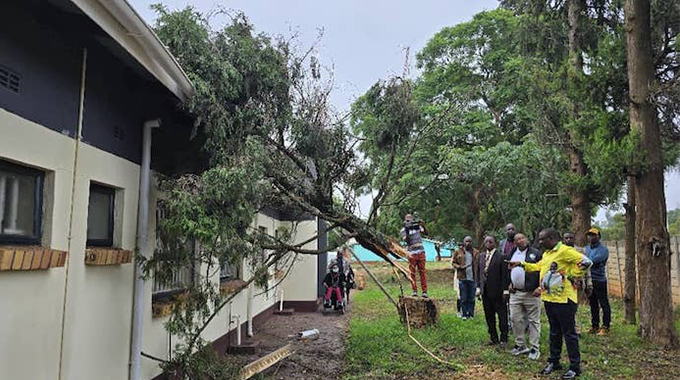Rural industries break export barriers

Prosper Ndlovu in GABORONE, Botswana
Zimbabwe’s rural industrialisation drive is making significant transformative inroads as previously marginalised communities are now taking part in the mainstream economy as producers of valuable goods for export.
In line with the devolution policy and the National Development Strategy (NDS1), the Government is spearheading development of rural economies through capacitating provinces and districts to harness locally available resources to generate incomes and create job opportunities.
The intervention has seen previously marginalised rural communities venturing into different value addition projects mainly in the leather, textile and agro-processing among others.

National Development Strategy 1 (NDS1)
This week the Government, through ZimTrade and the Ministry of Women Affairs, Community, Small and Medium Enterprise (SMEs) Development, has facilitated participation of representatives of rural producers at the Botswana Global Expo, which ends today in Gaborone.
Participants have expressed excitement over the exposure to the global market and indicate there has been positive feedback from potential buyers and investors who admire their products and services.
Matabeleland South Provincial Development Officer in the Ministry of Women Affairs, Mrs Merjury Sikundla, who leads a group of 11 rural producers said the Botswana Expo has motivated their members in a big way.

ZimTrade
The participants are showcasing produce in the leather value chain, bead work, agro-processing, art and craft, wild fruit value addition and textile.
“We came here to market our products to the region and globally while also networking with peers so as to get critical information on trends in the industry,” said Mrs Sikundla.
She said the producers were also seeking potential synergies.
“For example we have a chemicals laboratory here which wants to assist us in matters of health and sanitation product certification. This is important in exporting as markets are sensitive to issues of standards and quality assurance. Our team has also come to appreciate the importance of having adequate paperwork, packaging and standards certification,” said Mrs Sikundla.
She said rural industrialisation was the way to go for Zimbabwe to achieve inclusive growth and spread economic gains across the country.
Mrs Sikundla said through rural industrialisation, the Government was keen to transform all communities into self-sustaining producers of goods and services at local level, which also helps in easing rural to urban migration.
“Communities should create jobs at a local level and this is why these exhibitors are here.
“What is interesting is that women are taking the lead in rural industrialisation and are keen to drive exports,” said Mrs Sikundla.
“This is a chance for our women to leave the kitchen and tap into various business opportunities in different sectors. We already have more women participating in manufacturing and this proves that the economy is for all players including the disabled.”
Among the rural exhibitors is 70-year-old Gogo Lucy Ndlovu from Matobo district in Matabeleland South who is into art and craft and she says she earns a living from producing and selling baskets.
“I’m here to scout for markets to grow my business and I even have business cards to give my clients,” she said with a smile.
Mrs Judith Ncube who is representing Vusanani Co-operative from Bulilima District said they were running a marula fruit value addition project, which was producing eight types of products.
“We are excited to be here for the first time and we look forward to becoming a big company that supplies a wider market. We produce up to eight marula products such as marula oil, jam, marula nuts and peanut butter,” she said.

Mrs Beatrice Ntini from Beitbridge District who is into beading and was busy working on her products, said it takes more attention and creativity to produce a quality product that will appeal to buyers.
A representative of Mutamiri Leather from the Harare Leather Cluster, said their sector was producing a range of leather products such as shoes, belts, bags and wallets that they were keen to supply to local, regional and international markets.












Comments